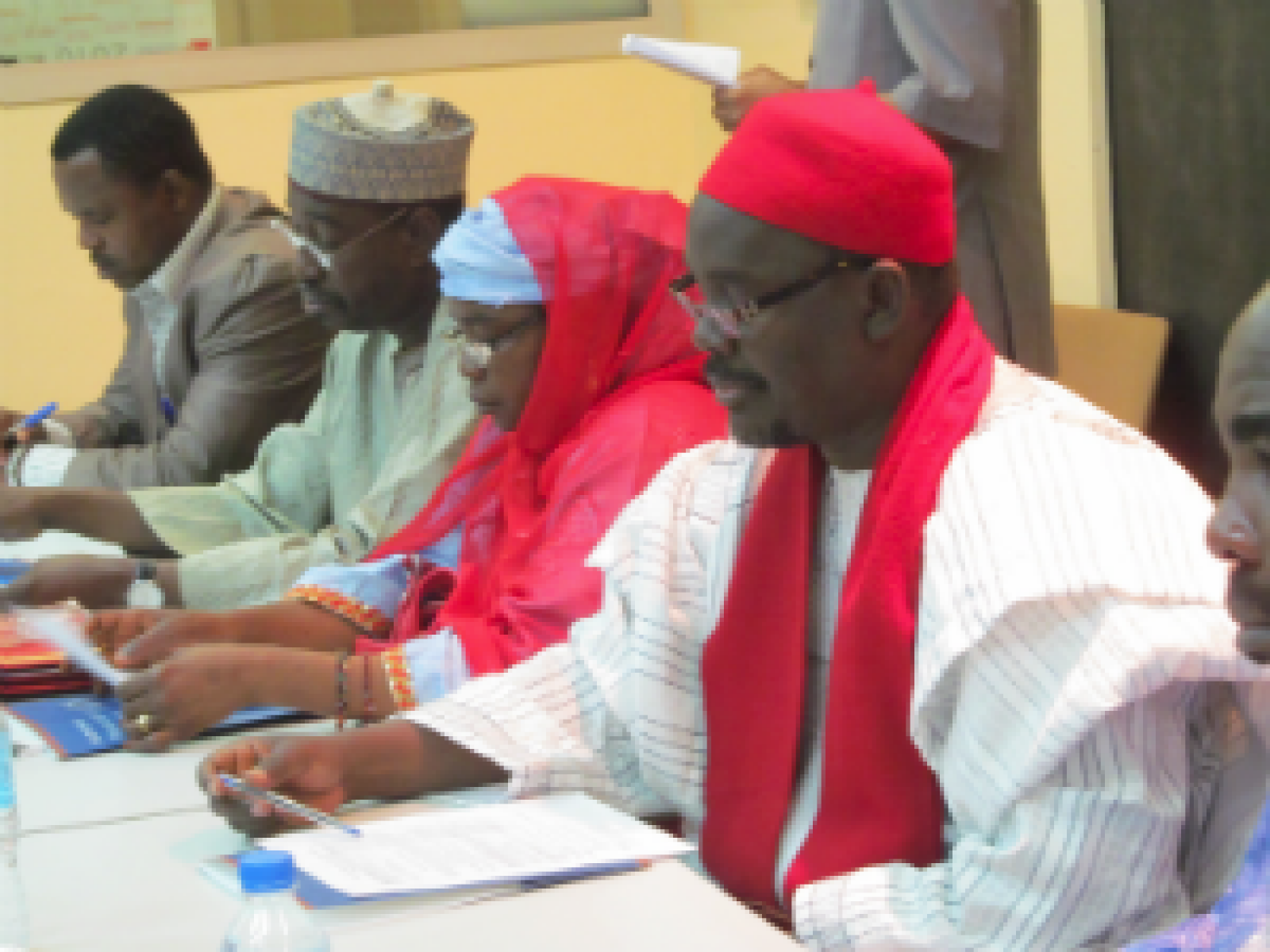
SHARE
Nearly 30 members of Niger’s national assembly discussed the relationship between gender and Islam during a one-day forum organized by NDI in Sadoré (40 km from Niamey, the capital of Niger) on March 7. Their objective was to familiarize members of parliament (MPs) with the different schools of thought that exist within Islam on themes connected to gender, human rights and education.
The adult literacy rate in Niger is 28.7 percent and the fertility rate is 7.6 children per woman. While Niger has ratified most international treaties and conventions on women rights, the integration of these into national law is incomplete. Laws that would strengthen the position of (young) women or promote gender equality are often perceived as controversial by faith-based groups within the 95 percent Muslim society.
NDI organized the forum to fill knowledge gaps and offer new insights to parliamentarians who are often confronted with these topics in their work. Ten female and 19 male MPs attended the discussion with three renowned and respected Islamic theologians and academics.
Among the controversial topics were the schooling of young girls and child marriages. Some families consider early marriages a protection for their young girls.
Participants noted that public schools often do not exist or are of low quality in rural areas. In these areas, education, they said, is provided by Koranic schools that are governed by conservative marabouts (Muslim religious leaders) who often teach one-sided religious and social concepts. Moulaye Hassane, an Islamologist, explained that education for both sexes is not in conflict with the principles of Islam, but equal education is condemned by some conservative groups for cultural and socioeconomic reasons.
Islamologist Ulema Sheik Barham Aboubakar presented different interpretations within Islam on divorce, heritage by women, dress rules and the role of mothers. He concluded that traditional social habits are often legitimized by presenting them as rooted in religion, and therefore not disputable. He said that Islam had evolved over centuries of debate and was open to interpretation and adjustment. In the same sense, Islamologist Sheik Bachir Mahaman Elh Oumarou underscored that equality between both sexes was rooted in Islam and that universal human rights were not in conflict with Islamic principles.
Following the presentations, MPs raised numerous questions. They also expressed their appreciation for a fact-based discussion on a topic that is often dominated by emotions. They said the seminar had provided them with useful new information and arguments in the debate on laws regulating schooling of young girls, questions related to equality between men and women, and the role of women in society.


